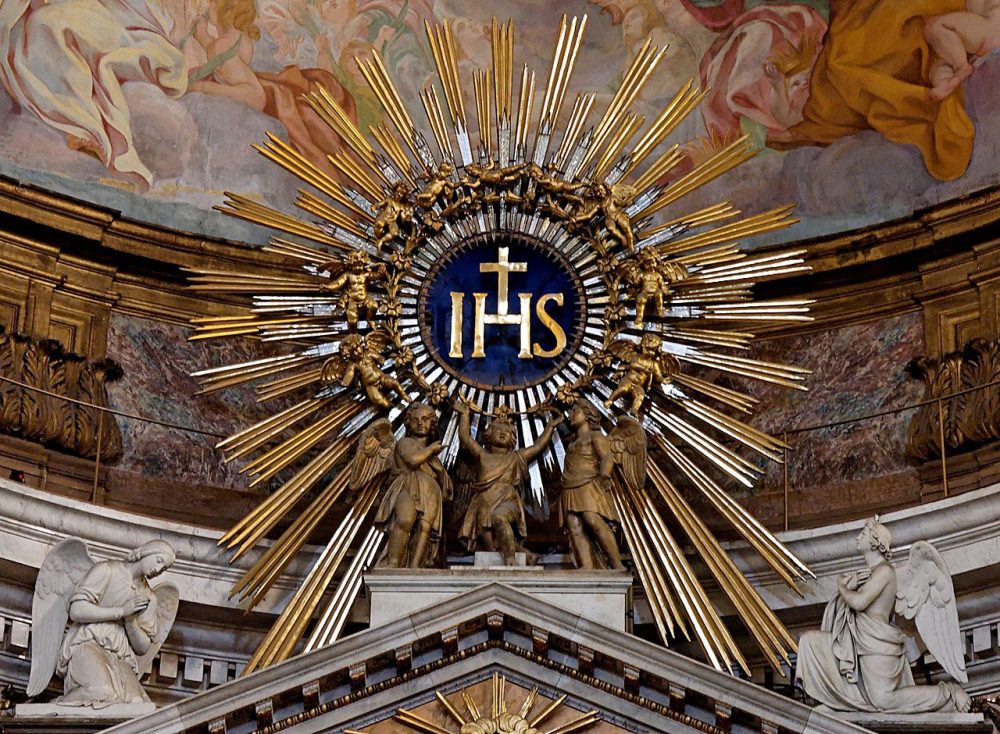Rev. José Mario O. Mandía
jmom.honlam.org
After addressing God, our Father, we then present seven petitions before Him.
“The first three, more God-centered, draw us toward him for his glory; it is characteristic of love to think first of the beloved. These petitions suggest in particular what we ought to ask of him: the sanctification of his Name, the coming of his Kingdom, and the fulfillment of his will.
“The last four petitions present to the Father of mercies our wretchedness and our expectations. They ask him to feed us, to forgive us, to sustain us in temptations, and to free us from the Evil One” (CCCC 587).
This structure reminds us of the Ten Commandments, where the first three commandments refer to God, and the following seven refer to our neighbor. As can be seen clearly, this prayer takes our attention away from self. We have already explained earlier that we are speaking to “our Father,” not “my Father.” In this prayer that Jesus taught us, there is no “I,” “me,” “mine,” or “myself.” This prayer teaches us how to be unselfish, to think first about God, then second about the others, and be forgetful of self.
FIRST PETITION: HALLOWED BE THY NAME
What does “to hallow” mean?
The CCCC (588) explains: “To hallow or make holy the Name of God is above all a prayer of praise that acknowledges God as holy. In fact, God revealed his holy Name to Moses and wanted his people to be consecrated for him as a holy nation in which he would dwell.”
The Catechism goes into more detail. “The term ‘to hallow’ is to be understood here not primarily in its causative sense (only God hallows, makes holy), but above all in an evaluative sense: to recognize as holy, to treat in a holy way. And so, in adoration, this invocation is sometimes understood as praise and thanksgiving (cf. Psalm 111:9; Luke 1:49). But this petition is here taught to us by Jesus as an optative: a petition, a desire, and an expectation in which God and man are involved. Beginning with this first petition to our Father, we are immersed in the innermost mystery of his Godhead and the drama of the salvation of our humanity. Asking the Father that his name be made holy draws us into his plan of loving kindness for the fullness of time, ‘according to his purpose which he set forth in Christ,’ that we might ‘be holy and blameless before him in love.’ (Eph 1:9,4)” (CCC 2807).
“How is the Name of God made holy in us and in the world?” asks CCCC 589. It then explains: “To make holy the Name of God, who calls us ‘to holiness’ (1 Thessalonians 4:7) is to desire that our baptismal consecration animate our whole life. In addition, it is to ask – with our lives and our prayers – that the Name of God be known and blessed by every man.”
We put this petition into action when we glorify God in all our being – body and soul. In chapter 6 of the First Letter to the Corinthians, Saint Paul exhorts us to glorify God in our body because (1) we (soul and body) are members of Christ, and (2) temples of the Holy Spirit: “Do you not know that your bodies are members of Christ? Shall I therefore take the members of Christ and make them members of a prostitute? Never! Do you not know that he who joins himself to a prostitute becomes one body with her? For, as it is written, ‘The two shall become one.’ But he who is united to the Lord becomes one spirit with him. Shun immorality. Every other sin which a man commits is outside the body; but the immoral man sins against his own body.
“Do you not know that your body is a temple of the Holy Spirit within you, which you have from God? You are not your own; you were bought with a price. So glorify God in your body” (1 Corinthians 6:15-20).
When we pray that God’s Name be made holy, we are reminded that we do not honor His Most Holy Name whenever we commit sin. Thus, this petition moves us to make reparation for our rebellions against God.
Blessed be God! Blessed be His Holy Name!


 Follow
Follow


